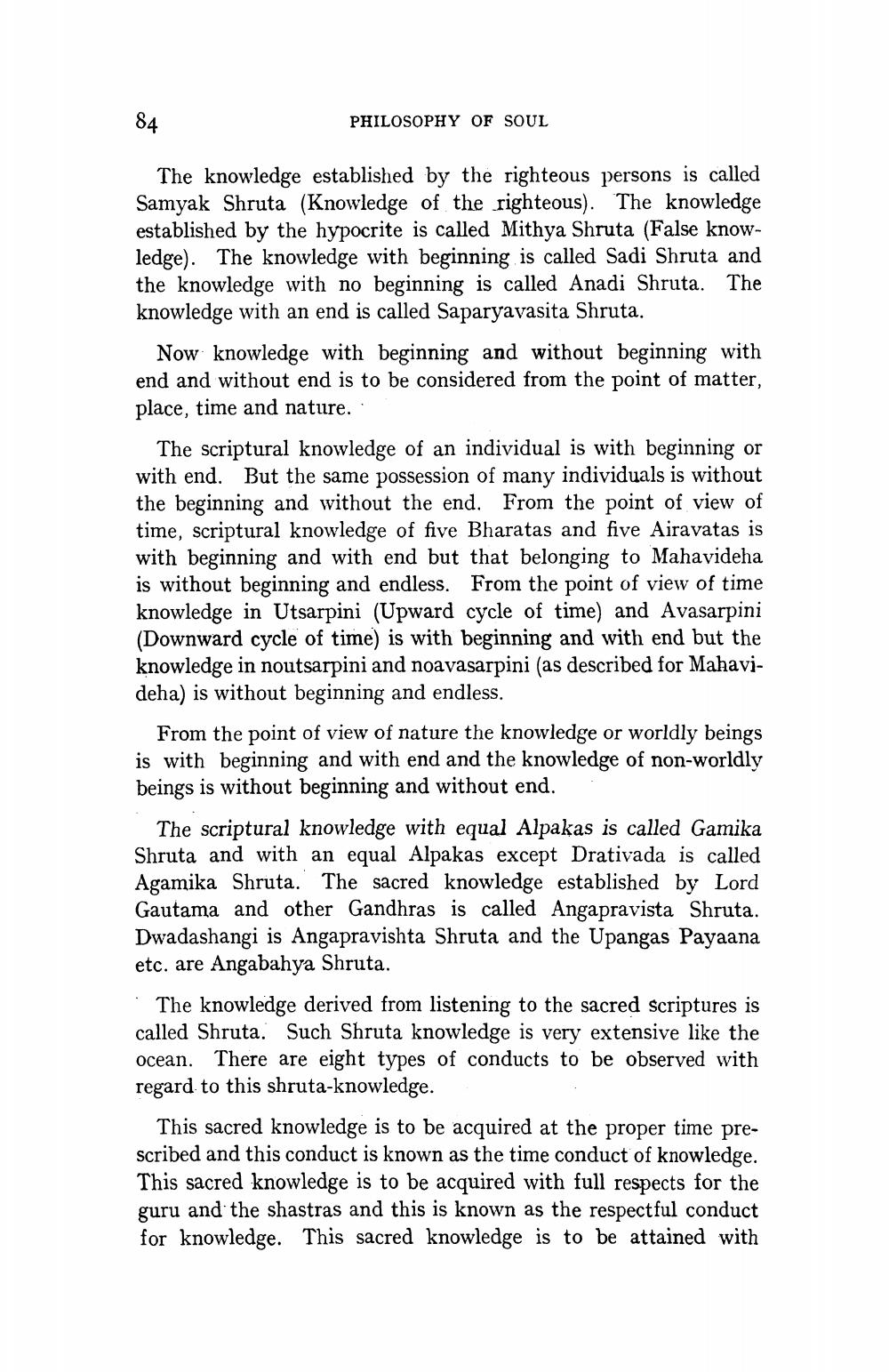________________
SA
PHILOSOPHY OF SOUL
The knowledge established by the righteous persons is called Samyak Shruta (Knowledge of the righteous). The knowledge established by the hypocrite is called Mithya Shruta (False knowledge). The knowledge with beginning is called Sadi Shruta and the knowledge with no beginning is called Anadi Shruta. The knowledge with an end is called Saparyavasita Shruta.
Now knowledge with beginning and without beginning with end and without end is to be considered from the point of matter, place, time and nature.
The scriptural knowledge of an individual is with beginning or with end. But the same possession of many individuals is without the beginning and without the end. From the point of view of time, scriptural knowledge of five Bharatas and five Airavatas is with beginning and with end but that belonging to Mahavideha is without beginning and endless. From the point of view of time knowledge in Utsarpini (Upward cycle of time) and Avasarpini (Downward cycle of time) is with beginning and with end but the knowledge in noutsarpini and noavasarpini (as described for Mahavideha) is without beginning and endless.
From the point of view of nature the knowledge or worldly beings is with beginning and with end and the knowledge of non-worldly beings is without beginning and without end.
The scriptural knowledge with equal Alpakas is called Gamika Shruta and with an equal Alpakas except Drativada is called Agamika Shruta. The sacred knowledge established by Lord Gautama and other Gandhras is called Angapravista Shruta. Dwadashangi is Angapravishta Shruta and the Upangas Payaana etc. are Angabahya Shruta.
The knowledge derived from listening to the sacred scriptures is called Shruta. Such Shruta knowledge is very extensive like the ocean. There are eight types of conducts to be observed with regard to this shruta-knowledge.
This sacred knowledge is to be acquired at the proper time prescribed and this conduct is known as the time conduct of knowledge. This sacred knowledge is to be acquired with full respects for the guru and the shastras and this is known as the respectful conduct for knowledge. This sacred knowledge is to be attained with




